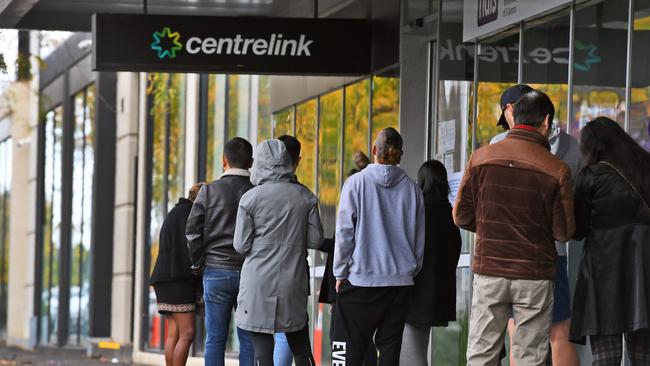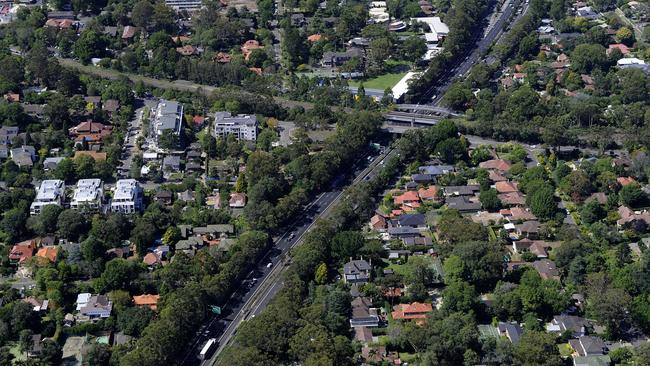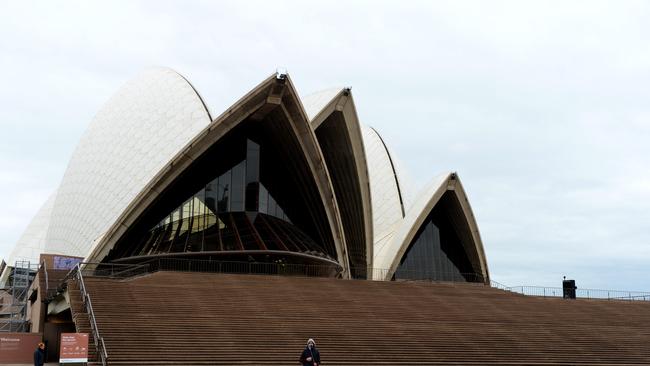Coronavirus financial impact: postcode breakdown of suburbs hit by pandemic
Shocking new data reveals the suburbs across NSW that have borne the full brunt of the COVID-19 financial crisis, with regional centres and Sydney’s most exclusive suburbs taking the biggest hits. SEE THE IMPACT ON YOUR SUBURB
Local
Don't miss out on the headlines from Local. Followed categories will be added to My News.
- Panic ordering GPs leave NSW suburbs without flu shots
- Virtual tour: First look inside M8 tunnels as opening date revealed
Shocking new data has revealed the suburbs across NSW that have borne the full brunt of the COVID-19 financial crisis.
Analysis by Taylor Fry principal Alan Greenfield revealed select suburbs across Sydney’s eastern suburbs and satellite cities like Tamworth, Orange, Dubbo and Wagga Wagga experienced some of the worst financial impacts of the coronavirus pandemic, while a large number of other postcodes across the state came out virtually unscathed.
Suburbs such as Alexandria, Paddington, Surry Hills and Bondi top the list of regions experiencing the most negative financial impact in Sydney — with households experiencing a “substantial reduction in an individual’s ability to meet their pre-pandemic cost of living”.
The suburb breakdown shows the postcodes that are least financially affected by COVID-19 in the darkest green, while those suburbs impacted the most will appear in dark red.
“The data tells us that the regions hurting the most are inner-city suburbs such as Alexandria, Paddington, Surry Hills and Bondi,” Mr Greenfield said.
“While regional towns and tourist hot spots like the Snowy Mountains and south coast are also experiencing greater financial pain.”
Mr Greenfield said regional areas like Wagga Wagga — which is made up of a large majority of middle income earners — face an increased financial impact as government policies like Jobseeker and Jobkeeper fail to cover usual salaries, while households also have less savings to fall back on.
Between 50 to 60 per cent of households in Wagga Wagga have been financially impacted by COVID-19.

The data index also suggests significant wage losses have been experienced in the agriculture and mining industries due to major decreases in demand and logistic issues when it comes to transport.
“Suburbs in southwest Sydney with a higher rate of households at the lower levels of income have not experienced major changes in their finances,” he said. “Government policies are propping up these communities so they are less exposed.

“While high income regions such as Sydney’s north shore in suburbs such as Pymble, Wahroonga and Gordon have a higher proportion of high-income earners who can rely on personal savings.”
Mr Greenfield said the widespread impact experienced in suburbs surrounding the Sydney and Canberra CBDs was not a surprise: “this financial loss experienced is due to the fact that it is an urban centre that relies on hospitality, tourism and business — which were all shut down during the pandemic”.

Regional towns that have been hit the hardest are expected to bounce back faster than city centres as a major increase in demand for regional tourism, agriculture and resources is experienced.
whereas Sydney suburbs will suffer the longest as major events with tens of thousands of people will be the last to return to normal.

